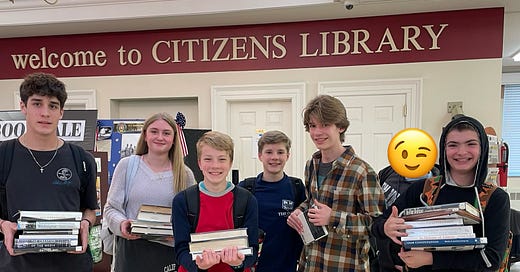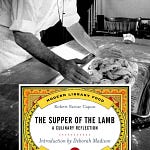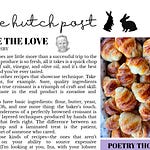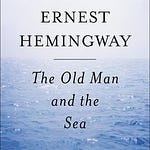The kids went on a field trip recently: the library.
It wasn’t unfamiliar turf. In fact, one of the librarians knew one of the students by name. And yet they looked lost, wandering about like sheep without a shepherd. Everything they thought they knew had gone out the window. Why? They were at the library for an unfamiliar purpose—research.
There they were, browsing the stacks of adult non-fiction—a part of the library some of them had never visited before—trying to navigate the Dewey decimal system. Some stared wide-eyed and bookless, completely overwhelmed. The more bold emerged with armfuls on topics ranging from trial by jury, the history of Alabama, and Jim Crow laws.
Their task was to write a research paper on topics connected to the historical context of To Kill a Mockingbird. But this was the kicker: I was only permitting books as sources.
At one point, a librarian approached me and offered, “Next time you are coming, let us know in advance, and we can set aside books for the kids on the topics they are researching.” Smirking slightly at the bewildered aspect of several students, I responded, “I appreciate it. But the wandering and hunting is part of the point.”
There is something deliciously inefficient about foregoing the internet (Not that there’s anything wrong with that.) The internet can be a great tool when you know what you are looking for—and you know how to recognize trustworthy sources. But for kids with strong personal opinions and zero discernment, a trip to the library is just what the doctor ordered.
Fast-forward a week. I walk past the bedroom where two of my students live, and its floor is scattered with open books. Later after dinner, my son says, “It’s astounding how much lynching happened in America.” For days, they have been holed up in their beds reading all over the place. They’ve gone way beyond finding a few “quotes” to support their arguments.
Because the point of the assignment was not just to learn how to do research—it was to push them to become researchers. They are learning all sorts of extra contextual bits, chasing curiosities, learning to follow the arguments of experts. In short, they are captivated by the topics they’ve chosen, absorbed in the project.
God has made us curious little beings. We are not the sum of everything we do, but we become who we are by what we do. Certainly, research papers must be done, and any self-respecting high schooler has to know how to do a research paper. But my students are becoming a certain type of person by the doing of their research.
By removing all the shortcuts—Google, Wikipedia, etc.—the doing becomes much harder. It requires page-turning, library wandering, manual searching, failed sources, false starts, extra reading, “wasted” time. It is an experience far from the surgical precision found in an online search bar. This is the point. The inefficiency actually allows the whole process to make a deep impression on malleable students.
A friend of mine recently characterized his grandpa using this quip: “I’m not lazy enough to be efficient.” As Americans looking to squeeze the most out of every dollar and minute, inefficiency often feels like the enemy. But sometimes, doing things the hard way is actually the quickest way to becoming who you ought to be.
A Shortcut I Can Get Behind.
If you’ve been with me for any length of time, you know I’m one for taking the long way in the kitchen as well. If you were to say to me, “We need something quick for dinner. Let’s just do sandwiches!” I’d say, “Sure, but first we have to make the bread!”
However, there is one shortcut that I can legitimately get behind, and it’s meal planning.
Call me a nerd, but I have every grocery shopping list since 2013 saved in an excel spreadsheet, and, man, does it come in handy when it comes to grocery shopping for a family of eight. I can be in and out of Aldi in under an hour with 2 weeks of groceries with my shopping list. And in a pinch, I can just grab a list from last month, last year, or a decade ago, click print, and hit the road.
Meal planning takes work on the front end, but it pays dividends in the long run. So is it really a shortcut? I’ll say this: It is now.













Share this post